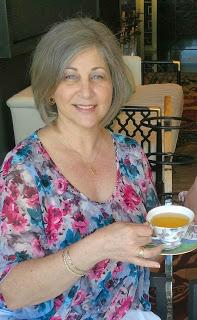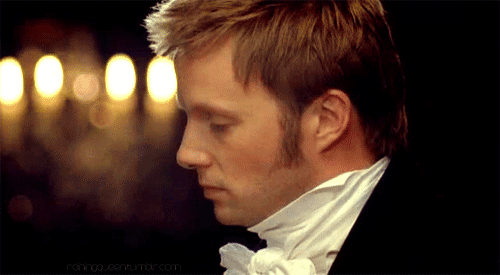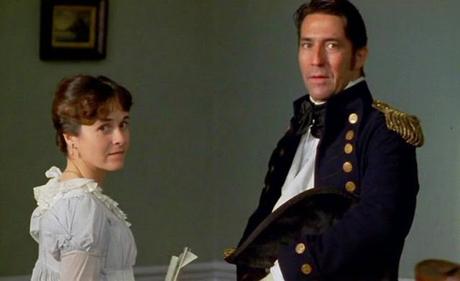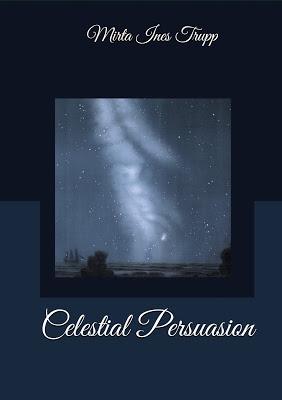 Hello Mirta and welcome to My Jane Austen Book Club! My first question for you is, as usual, “When was your first encounter with Jane Austen”?Hello Maria Grazia. Thank you for your warm welcome. I’ve been looking forward to this day! To answer your first question, I have to go back to Mrs. Malm’s English literature class in junior high school. I was in the ninth grade when we read Pride and Prejudice. I was an avid novel reader by that time, but—if memory serves me well—it took me several years to appreciate her genius and become a true Janeite.
Hello Mirta and welcome to My Jane Austen Book Club! My first question for you is, as usual, “When was your first encounter with Jane Austen”?Hello Maria Grazia. Thank you for your warm welcome. I’ve been looking forward to this day! To answer your first question, I have to go back to Mrs. Malm’s English literature class in junior high school. I was in the ninth grade when we read Pride and Prejudice. I was an avid novel reader by that time, but—if memory serves me well—it took me several years to appreciate her genius and become a true Janeite.Congratulations on the release of Celestial Persuasion. Did you discover something relevant about the characters in Jane Austen’s Persuasion while writing your book?
Indeed, I did, but it actually started when I was writing my previous novel, The Meyersons of Meryton and it had to do more with the setting, than the characters themselves. I had to come up with a grand idea on how to discipline Mr. Wickham—that devious blackguard! What I discovered not only provided me with creative alternative to transportation to Australia, it opened my eyes to some history I would have naturally learned—had I been educated in my native land of Argentina.
Let me explain. In general, those of us who read Austen and enjoy Regency period dramas are well versed in the Napoleonic Wars. It is almost impossible to pick up a novel focused on that era and not find something related to that ongoing conflict. It was a part of Austen’s life; it impacted all of Europe! But while Napoleon was causing havoc and marching across the Continent, there were others concentrating on the New World. My research took me down the proverbial rabbit’s hole and I landed at the feet of Lord Duff, the Fourth Earl of Fife. I learned of Lord Fife’s patronage of José de San Martín, Argentina’s famed liberator. I discovered the connections between the English and the Viceroyalty of Río de la Plata. What with all the stories of naval officers, banished monarchs, and ladies in Regency dress, I immediately began formulating an idea. The pieces were there on the table, waiting to be assembled like a great puzzle. And it was Captain Wentworth who put it all together for me.
Because the Napoleonic wars and the Viceroyalty’s struggle for independence occurred in the same timeframe, I was able to weave a story around my protagonist, Abigail Isaacs—a young woman who finds herself in dire straits—and the good captain of the HMS Laconia. Much like Austen’s work, a portion of the story is epistolary in nature. The correspondence between Abigail and Captain Wentworth would have been rather scandalous under normal circumstances. However, the narrative necessitates their communication; and by the end of my novel, the stage is set for Anne Elliot and the captain to begin their journey—just as Jane Austen envisioned.
What is the connection between Austen’s Persuasion and your Celestial Persuasion?

I fashioned my book to be a prequel; but in order to present it as such, I needed to fully comprehend Frederick Wentworth’s status in life just prior to his setting off on the HMS Asp. And so, I reread Persuasion. At the same time—while I was stumbling down that rabbit hole I mentioned in the previous question—I discovered a fascinating real-life woman by the name of Mariquita Sanchez. I found that her love affair with Jacob Thompson was similar to that of Anne Elliot and her captain. Both Mariquita and Anne’s choices were opposed by their families. In both instances, the families claimed that poor, young naval officers—unknown and untried—were no match for their daughters. Where Anne and Mariquita differ is in their approach. Anne allowed herself to be persuaded to withdraw from the attachment. Whether she did so for the captain’s sake or hers, is a question that many readers still debate. Mariquita, on the other hand, fought for her choice and it cost her dearly. My protagonist, Abigail Isaacs, also finds herself in troubled waters and is asked to make a life-altering decision. She has neither a lover or any family that will persuade her one way or another. Abigail is a woman alone; and being a rational creature, she makes her choice based on the facts as they are presented.
In short, there were many similarities between Argentina’s regency era and that of Austen’s work, and I couldn’t help but tie the stories together. I created a connection between Captain Wentworth and my protagonist’s brother. It is their friendship that forces the captain to enter into Abigail Isaac’s life and sets both of them on a new trajectory.
Was there a scene you particularly liked writing in Celestial Persuasion?
This is a difficult question to answer. I don’t want to spoil the read for your audience! I will only say my favorite scene was very satisfying to write. I felt that Abigail’s voice came through stronger and beyond anything I had originally imagined. Iwas moved by the scene, as if I was observing it as an outsider. I hope it’s a reader’s favorite too!
Another scene involved the inclusion of a Guarani legend. I needed inspiration for some dialog in between Lieutenant Gabay and Yasitata, a Guarani servant girl. I thought I’d have to spend hours researching the Internet about this indigenous culture, but I was lucky. Or perhaps, I was touched by a guardian angel who watches over authors with writer’s block—I’m not altogether sure! I’ll just say this: I was over the moon as I wove this fable into the storyline. The discovery of this material felt like a gift, and I was truly grateful (moon is the key word here, hint hint)
Do you have a favorite Austen novel? And who are your favorite heroine and hero?
As much as I enjoyed reading Pride and Prejudice—and have watched the 1995 film adaption over and over again—Persuasion won me over. The growth we see in Anne and Captain Wentworth is powerful; the constancy of their love is poignant. I touched upon these attributes in another one of my books—Destiny by Design~ Leah’s Journey. While this novel is not a true J.A.F.F., the book was definitely inspired by Austen; and Anne’s transformation in Persuasionis spoken of with great fervor by both of my protagonists. I loved Anne’s determination and kindness and quiet strength. I loved that Captain Wentworth, as much as he felt betrayed and misused, never loved another woman.

How has Jane Austen inspired you?
Her Realism inspired me. Her eagerness to show life as she saw it inspired me. Austen, as we know, wrote of her world and her surroundings. Though she was witty and not a little sarcastic, she brought us some heady subjects to consider and weigh. Of course, there were love stories; but in essence, Austen allowed us to look into a different world, a different culture, if you will. With my cultural heritage and ethnic background, following in Jane Austen’s footsteps gives me a platform to share my passion for combing Judaica with historical fiction. I certainly do not claim to have her genius; her style and wit are legendary. I just feel that she opened the door for the rest of us who have stories to tell—in a style all our own.
Tell me more about your research for Celestial Persuasion. What drew you to this particular storyline?
Although I was raised in the United States of America, I was born in Argentina. I suppose my immigrant radar picks up on words that others might not notice. For example, if I am reading, or watching a film, and words such as “the Argentine” or “the pampas” suddenly appear, I’m immediately drawn in! Though it is usually mentioned in passing, authors of the Regency and Victorian eras have often alluded to English involvement in the Viceroyalty of Río de la Plata. In the BBC miniseries of Edith Wharton’s novel, The Buccaneers, actor Greg Wise (otherwise known as Willoughby) plays the role of Guy Thwarte—a young man who goes off to build railroads in the Argentine. In the 2004 miniseries of Elizabeth Gaskell’s North and South, Mr. Bell leaves Margaret Hale a legacy before he sets sail to the land of the pampas. So you see, I just wanted to follow the example that was set before me.
Because I was raised in the U.S., my understanding of Argentina’s struggle for independence was rather lacking. I spent some time researching the history of England’s influence on the birth of the Argentine republic. Next, I had to delve into very basic astronomy and astrology from the Hebraic perspective. I was inspired by an article written by Moshe Levey where he says: “The sun was created to illuminate earth and to help us keep the holidays on season; the moon was created to help us create a calendar and count the months accordingly; and the stars served an even more meaningful purpose — to dictate the outcome of our lives” (credit https://forward.com/scribe/384377/what-the-talmud-has-to-say-about-the-stars/). Because Abigail Isaacs “studied the heavens”—as did her heroine, Caroline Herschel—I wanted the Hebraic dates to correlate with actual celestial activities in and around 1812. The Hebrew calendar is lunar based; and therefore, differs from the Gregorian calendar. I was fortunate to be able to work my story around actual historical data and Jewish holidays, and have it match with what was going on in the heavens above. This was particularly important in the chapter that revolves around the famous Battle of San Lorenzo.
You have mentioned two subjects not usually found in a Regency novel: Caroline Herschel and Jewish themes. How did you come to choose to write about such subject matter and does the reader need to have an understanding of Judaism to enjoy your book?
Great question! Let me say from the onset: All readers are welcome! I hope that I was able to represent Abigail Isaacs and Raphael Gabay’s Judaism much like Austen’s Anglican characters. Their faith forms a part of who they are; it’s just there—in the background. It simply adds another dimension. Writing about Jewish characters and themes is important to me, because what readers have been given by authors such as Chaucer, Shakespeare, Dickens, and even Heyer has left me wanting. Their caricatures of greedy, evil, big-nosed Jews is a travesty and must be addressed. On the other side of the coin, there is a multitude of reading material dealing with the horrific history of the Holocaust. This is as it should be. We should know, and never forget, what happened during that reign of terror; but Judaism is a religion that cherishes life. There is much more to our history than tragedy and sorrow. And that’s why I write Jewish historical fiction set in the Regency and Victorian eras. I don’t claim that my work is academic; it’s not meant to be! I hope you find it light and entertaining…and even enlightening
As to why I chose Caroline Herschel: I was looking for a role model for my protagonist, but found that there were few female mathematicians and scientists in the early 1800s. I discovered Sara Guppy, Mary Edwards, and Mary Somerville and was thoroughly impressed with their achievements. Then I came across Caroline Lucretia Herschel. Her extraordinary contributions to the world of science and astronomy were certainly an inspiration, but she had two other interesting attributes that caught my attention. One was her Jewish heritage and the other was her relationship with her brother William. The match with Abigail and her brother, Jonathan Isaacs was bashert: It was meant to be.
Why should Austen readers get a copy of Celestial Persuasion? How would you invite them to do it?
Thank you for asking! We all know that there is a plethora of Austen variations available to a world-wide audience of Janeites. I think it is telling that Austen’s work continues to inspire a diverse group. We have been presented with modern interpretations, time-travel storylines and narratives that focus on any number of ethnicities and cultures. This speaks to our thirst for new and tantalizing Austenesque plots and themes. Celestial Persuasion doesn’t change our beloved characters, but it will take the reader on a journey out of England. You will meet new people and cultures, and hopefully fall in love with another star-crossed couple. Celestial Persuasion is most definitely a stand-alone novel; and though I have tried to emulate Austen, the story is unique and my own. Let me close with Austen’s thoughts:
“I could not sit seriously down to write a serious Romance under any other motive than to save my life, & if it were indispensable for me to keep it up & never relax into laughing at myself or other people, I am sure I should be hung before I had finished the first chapter. No - I must keep my own style & go on in my own way; and though I may never succeed again in that, I am convinced that I should totally fail in any other.”
I invite your audience to come take a turn about the globe with me. If the stars align, Celestial Persuasion will be available on Amazon in both digital and print formats on June 30, 2021. I hope you enjoy the read! You can preorder it HERE.
Thank you, Maria Grazia for inviting me today. It was fun! If you, or your audience, would like more information about any of my books, I invite you to visit my blog
Thanks for your invitation and for taking the time to answer my questions. Best wishes for the upcoming publication!
ABOUT THE BOOK

Abigail Isaacs fears ever again falling under the power of love and dedicates her life to studying the heavens. However, upon her father’s demise she finds herself in reduced circumstances and must write to her brother, who has long been away at sea. When instead Captain Wentworth of the HMS Laconia sends a tragic reply, Abigail is asked to set aside her own ambitions and fulfill her brother’s dreams in the Viceroyalty of Río de la Plata.
In his relentless pursuit for justice, Lieutenant Raphael Gabay lends his sword to the Spanish American cause. But as he prepares to set sail with the others, he is entrusted with the care of a young woman. She is quite unlike anyone he has ever known, and Raphael begins to wonder whether the brilliant astronomer will see beyond his frivolous façade and recognize his true nature.
Their destinies have been plotted beyond the celestial veil; their charts foretell of adventure. Can these two troubled souls be persuaded to heed the stars and find love—and their purpose—in this fledgling nation?
Mirta Ines Trupp - Official Website

